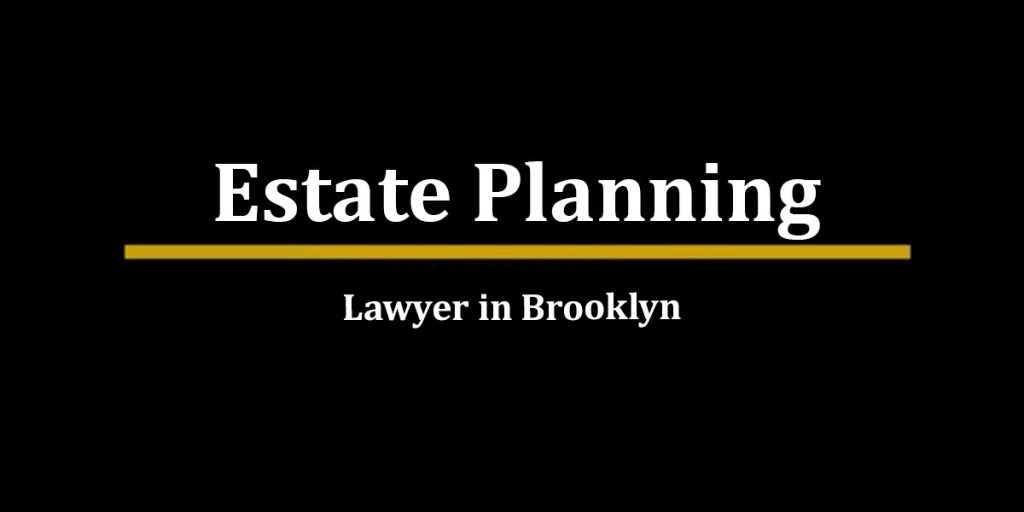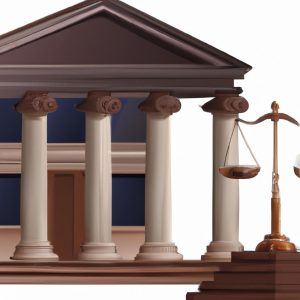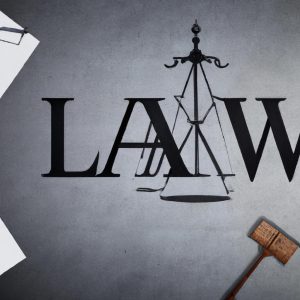Brooklyn Estate Planning Lawyer: Crafting Your Legacy, Securing Your Future
Introduction
In the heart of Brooklyn, New York, amidst the vibrant neighborhoods and bustling streets, lies the significance of securing your family’s future and preserving your legacy. One of the most profound steps you can take to achieve this is through estate planning. At Morgan Legal Group PLLP, we understand the importance of estate planning and its far-reaching impact on your loved ones. Our team of experienced Brooklyn Estate Planning Lawyers is dedicated to assisting individuals and families in the region, providing personalized and comprehensive estate planning services tailored to your unique needs.
In this blog, we will explore the critical role of a Brooklyn Estate Planning Lawyer, the significance of estate planning, the essential elements of an estate plan, and the process of crafting a comprehensive estate plan that secures your legacy and safeguards your family’s financial future.
The Role of a Brooklyn Estate Planning Lawyer
A Brooklyn Estate Planning Lawyer plays a pivotal role in helping individuals and families prepare for the distribution of their assets and the management of their affairs during their lifetime and after their passing. Here are some key responsibilities of a Brooklyn Estate Planning Lawyer:
1. Understanding Your Goals and Aspirations
A skilled Brooklyn Estate Planning Lawyer will take the time to understand your unique goals, concerns, and family dynamics. They will discuss your financial situation and healthcare preferences to design an estate plan that aligns with your wishes.
2. Crafting a Tailored Estate Plan
Based on the information gathered, the Brooklyn Estate Planning Lawyer will craft a personalized and comprehensive estate plan that addresses potential challenges and ensures the seamless transfer of your assets to your chosen beneficiaries.
3. Utilizing Estate Planning Tools
Brooklyn Estate Planning Lawyers are well-versed in various estate planning tools, such as wills, trusts, advance healthcare directives, and powers of attorney. They will guide you in selecting and implementing the tools that best suit your needs.
4. Ensuring Legal Compliance
Creating an estate plan involves navigating complex legal regulations and requirements. A Brooklyn Estate Planning Lawyer will ensure that your plan complies with all relevant laws to avoid potential complications in the future.
5. Periodic Review and Updates
Life is ever-changing, and your estate plan should evolve with it. A Brooklyn Estate Planning Lawyer will periodically review and update your plan to reflect changes in your family, finances, or legal regulations.
The Significance of Estate Planning
Estate planning is not merely a financial exercise; it is a reflection of your values, priorities, and love for your family. Here are some of the key reasons why estate planning matters:
1. Protecting Your Loved Ones
Estate planning allows you to provide for your loved ones even after you are gone. By designating beneficiaries, creating trusts, and making charitable contributions, you can ensure your family’s financial security.
2. Avoiding Intestacy Laws
Without an estate plan, your assets may be subject to intestacy laws, which dictate how your assets will be distributed. By having a will or trust in place, you retain control over who receives your assets.
3. Minimizing Estate Taxes
A well-crafted estate plan can help minimize estate taxes, allowing more of your wealth to be passed on to your beneficiaries rather than being lost to taxes.
4. Appointing Guardians for Minor Children
If you have young children, an estate plan allows you to designate guardians to care for them if you pass away prematurely. This ensures that your children are in the care of someone you trust.
5. Facilitating Business Succession
If you own a business, estate planning can help facilitate a smooth transition of ownership to your chosen successor, preserving the legacy of your business.
Essential Elements of an Estate Plan
A comprehensive estate plan typically includes several essential elements designed to achieve your specific goals. These elements may include:
1. Last Will and Testament
A last will and testament is a foundational document in estate planning. It outlines how your assets should be distributed and appoints guardians for minor children. Without a will, your assets will be distributed according to state laws, which may not align with your wishes.
2. Revocable Living Trust
A revocable living trust allows you to maintain control of your assets during your lifetime and facilitate the seamless transfer of assets to your beneficiaries upon your passing. A living trust can also help avoid probate and maintain privacy.
3. Advance Healthcare Directive
An advance healthcare directive, also known as a living will, allows you to specify your medical preferences and appoint a healthcare proxy to make medical decisions on your behalf if you become incapacitated.
4. Durable Power of Attorney
A durable power of attorney grants someone you trust the authority to manage your financial affairs if you become unable to do so yourself.
5. Beneficiary Designations
Reviewing and updating beneficiary designations on retirement accounts, life insurance policies, and other assets is crucial to ensure that these assets pass to your intended beneficiaries.
The Estate Planning Process: Step by Step
Creating a comprehensive estate plan is a collaborative and multi-step process that involves the guidance and expertise of an Estate Planning Attorney. Here is an overview of the estate planning process:
1. Initial Consultation
During the initial consultation with your Estate Planning Attorney in Brooklyn, you will discuss your goals, family dynamics, and financial situation. The attorney will explain the estate planning process and recommend appropriate strategies for your unique needs.
2. Information Gathering
To design an effective estate plan, your attorney will gather essential information about your assets, liabilities, and family members. This information will help identify potential challenges and opportunities in the planning process.
3. Designing the Estate Plan
Based on the information gathered, the attorney will design a personalized estate plan that aligns with your goals and addresses potential challenges. The plan may include a combination of wills, trusts, advanced healthcare directives, and powers of attorney.






